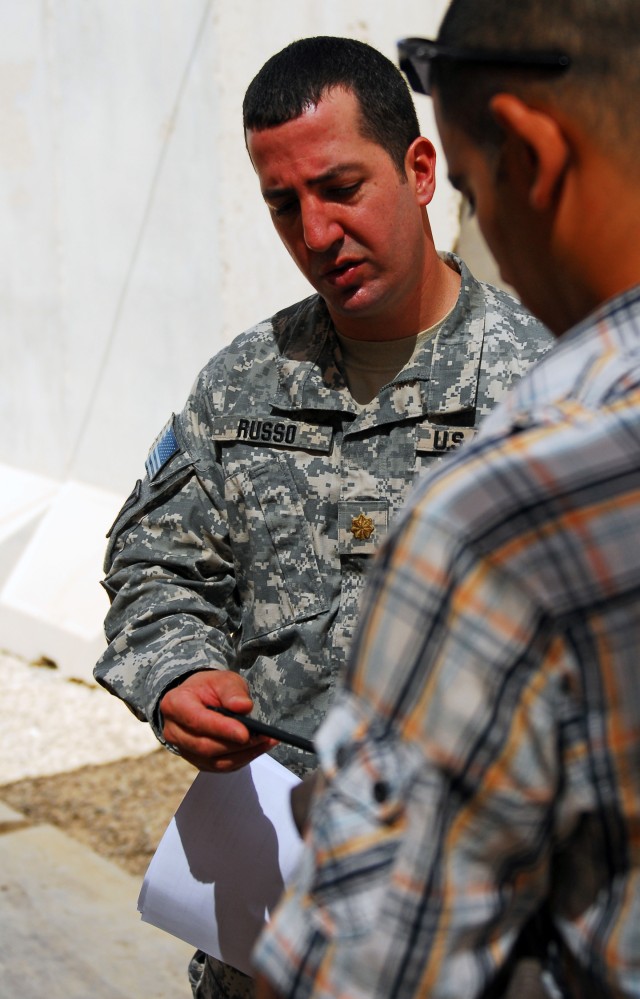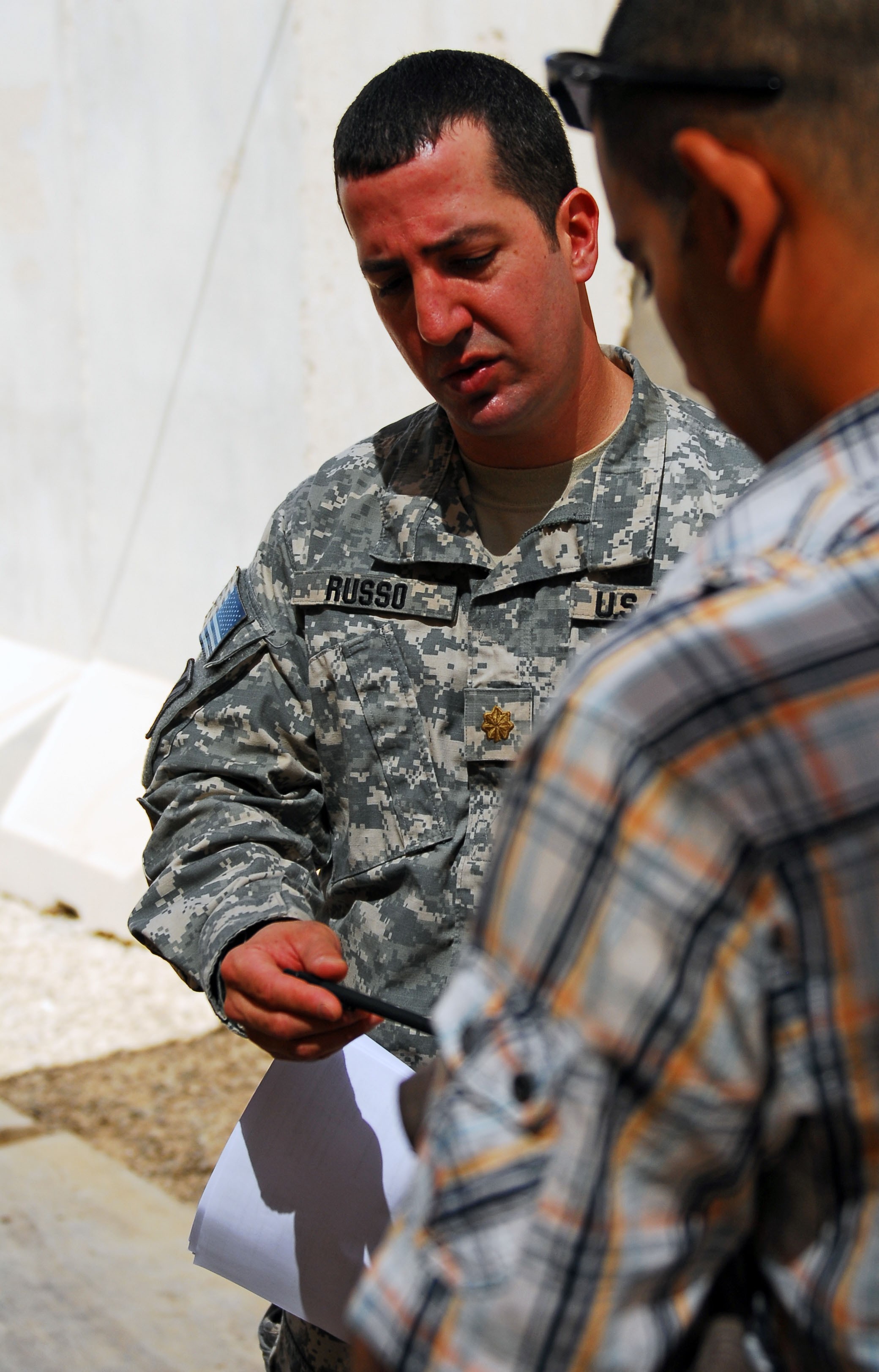BAGHDAD (Sept. 8, 2009) -- Here on Camp Victory, one man is charged with the responsibility of protecting the rights of more than 3,500 linguists while simultaneously ensuring they fulfill their contract with the military.
"My job is to protect the interest of the Army first and foremost, and the integrity of the mission," Maj. David Russo, assistant contracting officer's representative, explained. "That being said, there is no sweeping under the rug, every issue presented by a linguist or a member of a unit must be looked into."
Russo works independently out of an office on the first floor of the Al Faw Palace. Sometimes his mission can make him feel isolated.
"You always have to maintain a wall with the contractors, to be professional. When investigating a linguist concern sometimes I get the attitude of, 'Hey, who's side are you on'' from the military."
The reality is that Russo, along with four other ACORs, are on both sides, serving as a liaison between military units and the linguist contractors in theater.
ACOR has oversight of a $5.6 billion contract, covering Iraq and Afghanistan. In 2005 the managing of linguist responsibilities was an additional duty within the unit. In 2006 it became a mission carried out by officers overseen by a colonel in theater.
"We ensure the terms of the contract are being met, make sure they do what they are hired to do, are treated fairly and are able to communicate accurately between U.S. forces and Iraqis," Russo said.
Presently the mission here in Iraq is being executed by reserve officers. Russo, an intelligence officer formerly attached to a Florida reserve unit, draws upon his experience as a corporate lawyer in the civilian world.
"Circumstantial evidence is great, but at the end of the day it's the facts and reality of the case that will determine the outcome."
There are three aspects of Russo's mission, validations, surveys and on-site inspections or visits.
"To account for linguist I review a list, for example the 30th HBCT which has 350 linguists, with the contract site manager and the brigade linguist manager to ensure first of all that everyone is where they are suppose to be," he said.
As the drawdown commences and units have moved out of cities, translators are let go or reassigned. Some never return from rest and relaxation leave.
Russo also surveys the linguist and linguist managers. The surveys give the linguist the opportunity to voice their concerns without any pressure from military personnel.
"I am the only one that reviews the surveys, the Army never sees them, so the linguist can be assured there will be no influence from the unit they are assigned to," Russo explained.
He said most of the concerns he deals with are timely paychecks, housing standards and access to the Post Exchange and chow halls. The next step is to conduct on-site inspections.
Complaints of an interpreter being incompetent often stem from personality clashes between the translators and U.S. civilian contractors Russo said.
To determine linguist capabilities he will review their scores from mandatory language test. Sometimes he will accompany a patrol with the unit to see how they are interacting with the translator.
"It comes down to a subjective decision on my part; I try to be as fair as possible while allowing for the benefit of the doubt."
(Russo can be contacted at david.russo@iraq.centcom.mil and david.russo@s-iraq.centcom.smil.mil )


Social Sharing